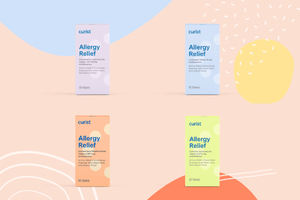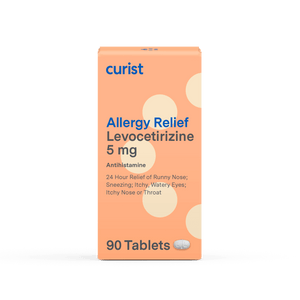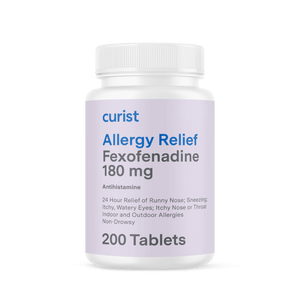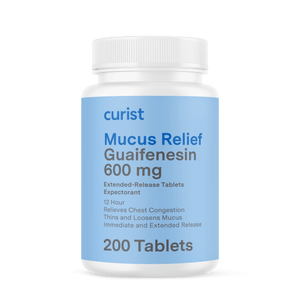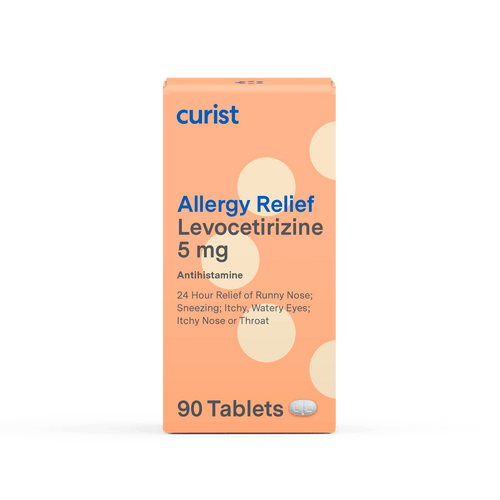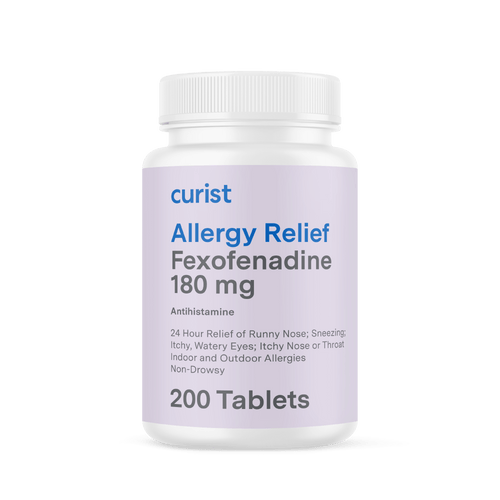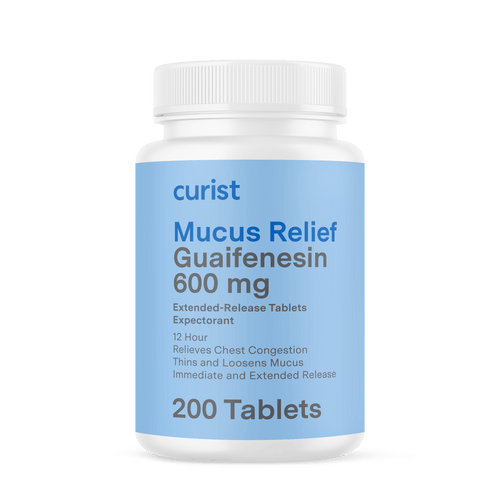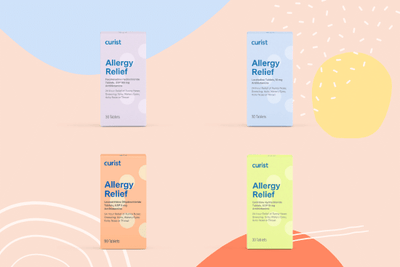by Dr. Kyler Tormey, PharmD, and Dr. Marc Goldstein, MD, Curist Medical Advisor
Curist delivers over-the-counter medicines to your door at a fraction of the price of traditional brands. We hope everyone stays safe and healthy during this time.
Spring and fall seasons are high-time for allergen triggers. In the midst of the coronavirus pandemic, how can you tell the difference between your allergies, asthma, and coronavirus (COVID-19) symptoms?
What are Allergies?
Allergies are an immune system reaction to triggers, known as allergens. Triggers can be everyday substances like pollen, ragweed or pet dander that the body identifies as harmful and generates antibodies against them. Whenever the body encounters those triggers, the immune system kicks in, causing symptoms like sneezing, itching, stuffy or runny nose, and watery or red eyes. Check out All About Allergies by Curist Allergy Advisor Dr. Marc Goldstein to learn more.
What is Asthma?
Asthma is a chronic lung condition which causes inflammation, excess mucus production, and narrowing of airway passages. This airway narrowing can make it hard to breathe, causing sufferers to cough or wheeze, feel short of breath, or have chest tightness.
Allergies vs Asthma? What is the Difference?
Allergies and asthma are separate conditions with different symptoms, but are often related. People can have just allergies or asthma, but in many cases people have both.
For some people with both allergies and asthma, allergies can trigger asthma flare ups or attacks. For example, in allergic asthma, the same triggers that cause your allergies, such as dust mites or mold, can cause people to cough or feel short of breath. In contrast, in exercise-induced asthma, working out in cold, dry air can cause asthma symptoms but is not related to allergies.
Is my Cough from Allergies, Asthma or Coronavirus?
Asthma, allergies, and coronavirus can all cause you to cough. If you have asthma or allergies, your chest symptoms are, unfortunately, likely to be familiar to you. If your symptoms are occurring without your normal trigger or feel different, and you have a fever, you should consider being tested for COVID-19.
A difference in symptoms to look out for could include whether or not you are coughing up mucus when you experience symptoms. Asthma and allergies are often accompanied by a wet cough, meaning you cough up mucus. However, almost 70% of coronavirus cases had a dry cough, meaning no mucus was produced.
The main symptom to look for when experiencing potential coronavirus symptoms is the presence of a fever, or temperature over 100.4 degrees. Asthma and allergies do not typically cause fevers unless they are associated with an infection, which requires attention from a medical professional. It is important to know COVID-19 can actually cause an asthma attack. If you have a fever or are worried you may have symptoms because of the coronavirus, contact your doctor.
If Asthma and Allergies Affect my Lungs, Does that Mean I am at High Risk for Coronavirus?
There is no evidence that having asthma or allergies makes you more likely to contract the coronavirus. However, the Centers for Disease Control (CDC) warns that those with moderate-to-severe asthma may be at higher risk of having poor health outcomes if they contract COVID-19.
Isn’t My Asthma Inhaler an Immunosuppressant? Should I Stop Taking it?
Asthma is commonly controlled with inhaled corticosteroids (ICS) which work by suppressing the inflammation, and thereby the immune system, which causes airway narrowing in asthma. Stopping your inhaler without consulting your doctor places you at an increased risk of having an asthma attack. There is currently no data to support taking an ICS makes you more vulnerable to COVID-19. Instead, continuing your ICS can help keep you healthy by modulating airway inflammation which can be associated with viral infections.
What are Tips for People with Asthma and Allergies During Coronavirus to Protect Themselves?
For someone with asthma or allergies, there are several ways to help protect yourself from coronavirus.
- Control Existing Symptoms. Keep your asthma and allergy symptoms well controlled with your normal therapies. Do not stop taking your medications without speaking to your doctor.
- Stock Medications. The CDC recommends keeping extra necessary medications, at least a 30-day supply, in the case you have to quarantine at home. Make sure you have enough antihistamines, inhalers, or other therapies to keep your symptoms controlled. Try using a mail order service or drive-thru pharmacy to maintain proper social distancing.
- Avoid Triggers. Limit exposure to your allergy or asthma triggers when possible. This means going outdoors in the evening when pollen levels are lower, showering after going outside, and limiting pet dander exposure indoors by keeping animals out of the bedroom and installing a HEPA filter.
- Regularly Clean. Pollen and coronavirus can cling to your clothes and be tracked back into your house. Make sure to regularly clean high-touch surfaces and use the right products to best kill the coronavirus.
- Get a COVID-19 Vaccine. Everyone who is 5 years and older is now eligible to get COVID-19 vaccination. If you are fully vaccinated, you can resume many activities that you did prior to the pandemic.
- Wear a Mask. Depending on your COVID-19 vaccination status, you may choose to wear a mask regardless of the level of transmission if you have a weakened immune system or if, because of your age or an underlying medical condition like asthma.

